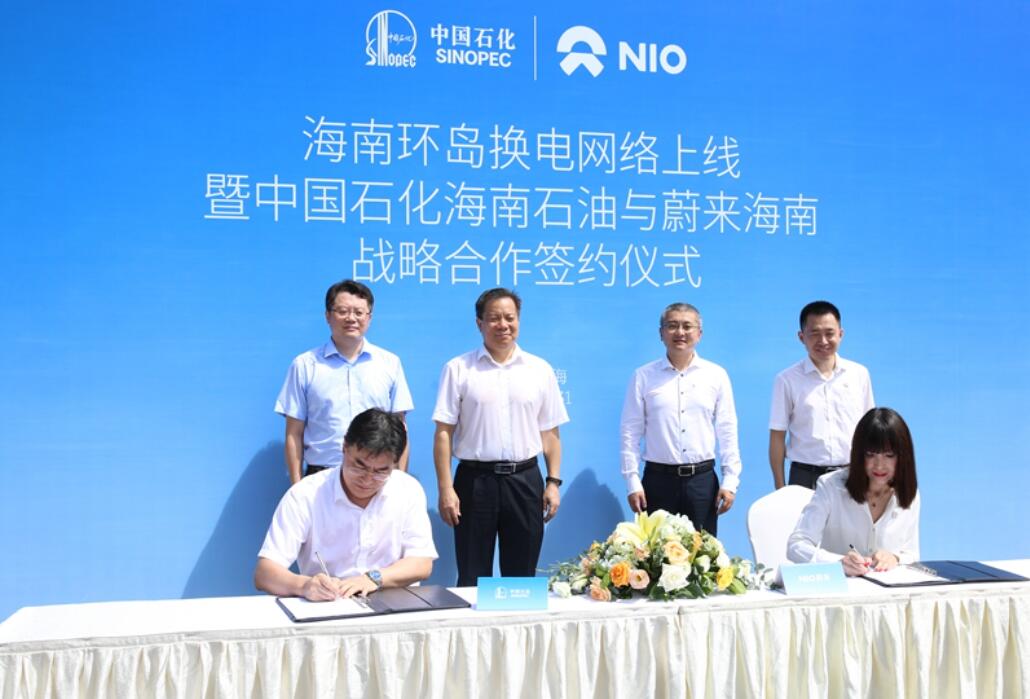Nio and Sinopec's joint charging and swap station in Hainan comes into operation

Nio and Sinopec Hainan branch signed a cooperation agreement on Tuesday to put into operation the first charging & battery swap station they have built in the province.
Another charging & battery swap station built by the two will be completed this year, Sinopec said, adding that the company will continue to work with Nio and other companies to deploy battery swap stations in various urban areas and around tourist attractions.
Sinopec said the two companies will cooperate in charging & battery swap station construction, brand marketing, materials, and battery asset operation.
This is the latest development in the partnership between Nio and the fossil fuel giant.
Nio entered into a partnership agreement with Sinopec on April 15, agreeing to build battery swap stations in Sinopec gas stations.
Nio's first second-generation battery swap station was officially opened on the same day at the Sinopec Chaoying gas station in Beijing, the first charging facility built jointly by the two companies and Nio's 201st battery swap station.
However, since then, there has not been much progress on the cooperation between the two, with only two co-built stations announced on April 18 and June 5.
Last Thursday, the first Nio second-generation battery swap station between Nio and Sinopec was put into operation in Dalian, which is the latest battery swap station we have seen after Beijing, Taiyuan and Shijiazhuang.
Nio completed two more battery swap stations in Hainan on Tuesday, bringing the local count to 10.
Earlier this month, the Hainan Development and Reform Commission released a document showing that a pilot will be launched to accelerate the construction of battery swap stations for electric vehicles in the region.
The pilot sites include tourist road stations around the island, highway service areas, gas stations, stations, ports and airports.
The paper said the pilot will focus on cabs, ride-hailing services, buses, passenger shuttles, and medium and heavy commercial vehicles.
For battery swap stations built in 2021 and 2022, the government will give a construction subsidy of 15 percent of the project's equipment investment. Cities and counties can further increase the subsidy standard according to the actual situation, the document said.

